Car Clicks But Won’t Start? (Single vs Multiple Clicking Causes)
Perhaps the most common automotive problem in the world is a car that won’t start. It’s a problem that ails millions of people each year, and one of the most common ways this happens is with a vehicle that clicks and doesn’t turn over at all.
But just because it’s common doesn’t make it any less frustrating. With that in mind, we’ve come up with this guide that breaks down everything you need to know about this common yet frustrating problem – including how to fix it right the first time!
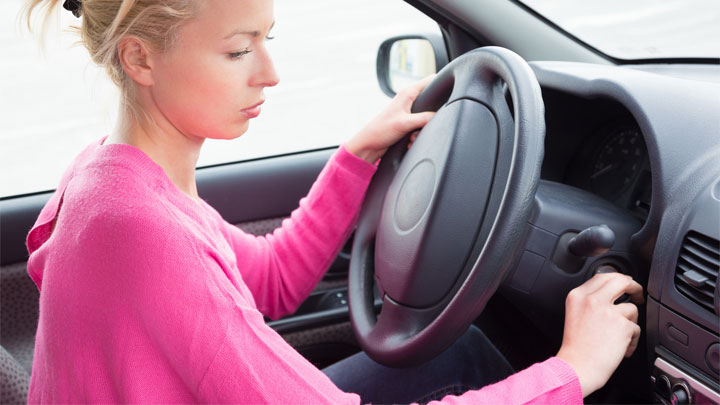
What Makes the Clicking Noise?
When you turn the ignition and only hear a clicking noise, it’s helpful to know what’s making the clicking noise in the first place. The click you hear is from the start pinion smacking into the flex plate or flywheel (depending on whether you drive an automatic or manual transmission vehicle).
This can happen with a single click, or the starter can rapidly retract and try to reengage, depending on various factors.
See Also: How to Troubleshoot a Starter That Spins But Doesn’t Engage
Single Click vs Multiple Clicks
If you only hear a single click when you try to start your vehicle, the starter tried to engage, but there’s simply not enough energy there to turn over the engine or to even try again.
Meanwhile, if the starter is constantly smacking into the flex plate or flywheel, your vehicle still won’t start, but it means something different.
Causes If You Hear a Single Click

If you hear a single click when you turn the ignition and then nothing else, that’s a surefire sign that the starter isn’t getting enough power. But while this is almost always what’s going on, there are a few different reasons it could be the case.
#1 – Dead Battery
By far, the most common reason your car might produce a single click when you try to start it is a dead or faulty battery. The battery has enough power to engage the starter once, but once it engages, it doesn’t have enough power to turn over the engine or to keep trying to engage the starter.
#2 – Faulty Alternator
This goes hand-in-hand with a dead battery. The alternator charges the battery while you drive, and if it doesn’t do this, it’s only a matter of time until you end up with a dead battery. But if you simply charge or replace the battery and you have a faulty alternator, it won’t take long until you have a dead battery again.
Related: Bad Battery vs Bad Alternator
#3 – Corroded/Loose Connections
Sometimes everything in your vehicle is working the way it should, and there’s just not a good connection between the battery and the starter. This could be a loose wire or a corroded connection, but either way, it’s creating a lot of resistance which keeps your vehicle from starting.
Causes If You Hear Multiple (Rapid) Clicks
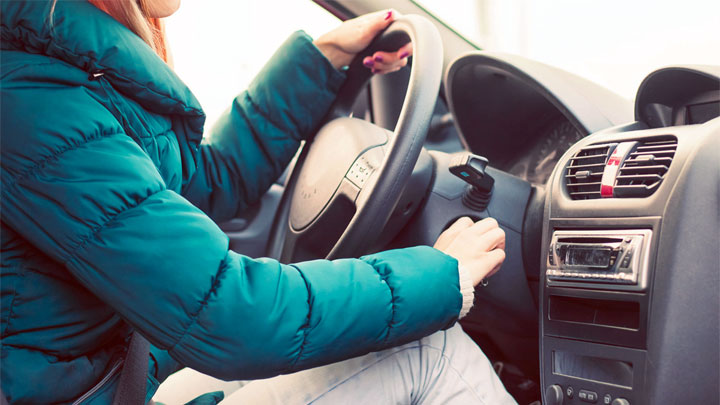
If you’re trying to start your vehicle and you hear a bunch of clicks instead of just one click, it’s a different problem. While the causes may be similar to that of a single click, it could in addition be a faulty starter.
#1 – Dead Battery
Just like a single click can be a dead battery, a series of rapid clicks could be a problem with the battery too. When this happens, the battery is pushing enough voltage to engage the starter but not enough power to try and turn over the engine.
The battery is dead, but it’s not as dead as a doorknob like it is if you’re only getting a single click. You might need to replace the battery if this is the case, but it’s more likely that you’ll be able to charge the battery and keep using it.
#2 – Faulty Alternator
The alternator charges the battery, so a faulty alternator will lead to a dead battery. Always double-check the alternator before you dive right in and replace the battery.
#3 – Corroded/Loose Connections
Just like loose and corroded connections can lead to a single click, it can also lead to rapid clicks. The starter needs the right amount of power to do its job, and loose and corroded connections limit the amount of power that makes it to the starter.
#4 – Faulty Starter
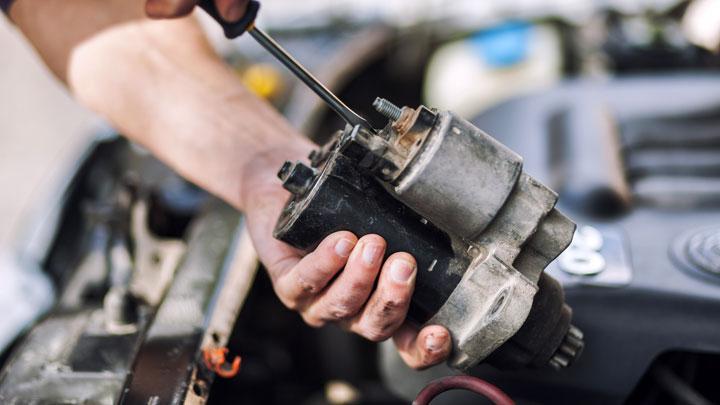
If the starter isn’t working the way it should, it might engage and then lack the necessary power to turn over the engine. When this happens, it pushes out, hits the flywheel, and then goes back in.
As you hold the ignition, this process repeats over and over, and what you hear is a ton of clicking.
What to Do (Diagnostic Steps)
Now that you know a little more about why your vehicle might not start, it’s time to narrow it down to exactly what’s going on. With that in mind, we’ve come up with a step-by-step guide on how to figure out exactly why your vehicle is clicking and won’t start.
#1 – Check Connections
This isn’t always the most likely problem, but it is the easiest to rule out. Pop open the hood and look at the connections on the battery terminal.
Ensure they’re tight and there’s not any corrosion. Clean the terminals and tighten the connections if necessary and retest if your vehicle starts.
#2 – Test the Battery
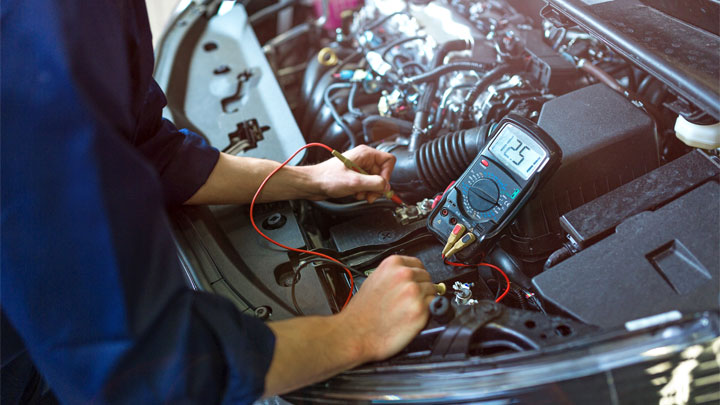
Once you verify the connections are solid, check the battery itself. Check for both voltage and cold-cranking amps during this step. If there are 12.6 or more volts but not enough cold-cranking amps, you can replace the battery, otherwise, move on to the next step.
Note: Most auto parts stores will test your car battery for free. However, keep in mind they’re in the business of selling you something.
#3 – Charge the Battery
Just because the battery doesn’t have enough voltage doesn’t mean you need to replace it. If there’s not enough voltage in the battery, put it on a battery charger before you even think about replacing it.
#4 – Re-test the Battery
Once the battery gets a full charge, retest it. At this point, the battery should hold at least 12.6 volts and push enough cold cranking amps for your vehicle. If the battery fails on either of these points after you charge it, it’s time for a new battery.
Read Also: Car Cranks But Won’t Start (What’s the Cause?)
#5 – Check If the Car Starts
Now that you know the battery has enough charge check to see if your vehicle will start. If it does, you’re still not done, but you can rule out a defective starter and skip that step when you get to it at the end!
#6 – Test the Alternator
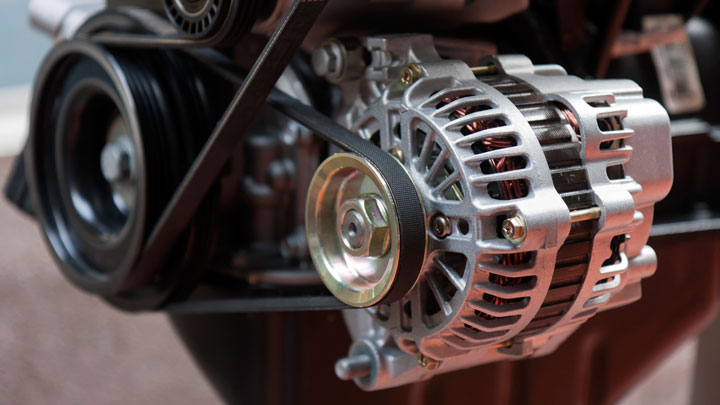
If your vehicle started up after charging up the battery, do yourself a favor and check the alternator. If your vehicle has a faulty alternator and you skip this step, it’s only a matter of time until you wind up with a vehicle that won’t start again.
When testing the alternator, it should push close to 14 volts, otherwise, it’s faulty, and you’ll need to replace it.
#7 – Test the Starter
If you’ve already completed the first six steps in our troubleshooting guide, we can all but guarantee you that the starter is the problem. But before you replace any part, you should double-check your work by testing the component.
Bench test a starter by applying power to the proper terminals and then ensuring it has enough power by using a small prybar.
- P0521 Code (Symptoms, Causes, How to Fix) - Mar 22, 2024
- How to PROPERLY Clean 5 Types of Steering Wheel Materials - Feb 19, 2024
- What Should You Do If Your Check Engine Light Comes On? - Nov 6, 2023

I did all this and my car still won’t start.